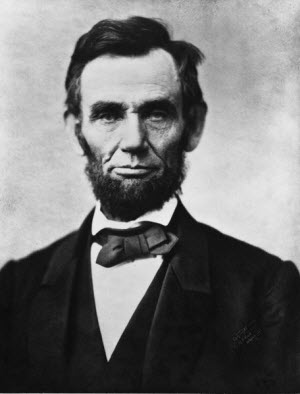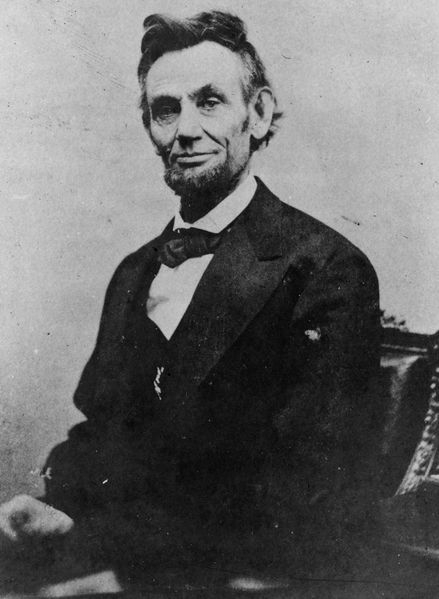In explanation of Lincoln's great popularity, D. W. Bartlett, in his "Life and Speeches of Abraham Lincoln," published in 1860 makes this statement of "Abe's" efficient service to his neighbors in the "Great Snow" of 1830-31:
"The deep snow which occurred in 1830-31 was one of the chief troubles endured by the early settlers of central and southern Illinois. Its consequences lasted through several years. The people were ill-prepared to meet it, as the weather had been mild and pleasant--unprecedentedly so up to Christmas--when a snow-storm set in which lasted two days, something never before known even among the traditions of the Indians, and never approached in the weather of any winter since.
"The pioneers who came into the State (then a territory) in 1800 say the average depth of snow was never, previous to 1830, more than knee-deep to an ordinary man, while it was breast-high all that winter. It became crusted over, so as, in some cases, to bear teams. Cattle and horses perished, the winter wheat was killed, the meager stock of provisions ran out, and during the three months' continuance of the snow, ice and continuous cold weather the most wealthy settlers came near starving, while some of the poor ones actually did. It was in the midst of such scenes that Abraham Lincoln attained his majority, and commenced his career of bold and manly independence.....
"Communication between house and house was often entirely obstructed for teams, so that the young and strong men had to do all the traveling on foot; carrying from one neighbor what of his store he could spare to another, and bringing back in return something of his store sorely needed. Men living five, ten, twenty and thirty miles apart were called 'neighbors' then. Young Lincoln was always ready to perform these acts of humanity, and was foremost in the counsels of the settlers when their troubles seemed gathering like a thick cloud about them."
Abraham Lincoln | Events | People | Abraham Lincoln Quotes |
Quotations About Abraham Lincoln | Abraham Lincoln Photo Gallery | Abraham Lincoln Timeline |
Privacy Policy | About Us | Site News | Site Map |
Anecdotes and Stories About Abraham Lincoln


